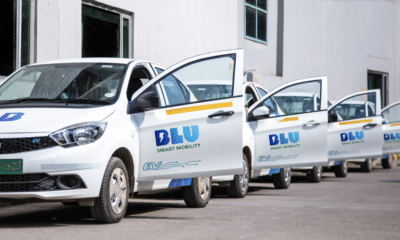Analysis
Auto financiers hesitant to finance EVs due to no resale value
Consumers interested in electric vehicles are facing challenges as auto financier shy away from financing EVs because of no resale value of such vehicles. Financial institutions, NBFCs and banks are reluctant to finance EVs.
Like any transformative new technology, electric vehicles create a variety of potent economic development challenges and opportunities. While the EV market is still at a relatively early stage of development, it is poised to reshape industries and communities across the world. EVs are much cheaper to operate than conventional vehicles. Experts believe drivers who switch to electric vehicles will have more disposable income to spend in other sectors of the economy, such as housing and services.
However, risk is the main cause of financing challenges. According to RMI, an EV is considered a riskier class to finance than an internal combustion engine vehicle. EVs face a range of risks that can be categorized as asset risk and business model risk. Asset risk is associated with the financing of a vehicle, includes risks related to technology, policy, manufacturing and resale. Business model risk is associated with the use of a vehicle; it includes risks related to customer profile, expected utilization and operations, and maintenance.
Because of these risks, banks and non-banking financial companies in India are seeking higher interest rates for EVs and are willing to only finance a smaller share of vehicle value. Moreover, there are few specialized loan products for EVs and insurance rates can be higher for some segments and use-cases.
Sohinder Singh Gill, director general, Society of Electric Vehicle Manufacturers, told ToI that there is hesitancy among financiers about EVs particularly e-two wheelers. “Currently, only 9% of e-two wheelers get financed.”
Deb Mukherji, Omega Seiki Mobility, pointed out that as much as 80% of personal vehicles in India and more than 90% of all commercial vehicles are sold through financing options. “Financers concerns are understandable and the EV industry needs to address those by offering robust high-quality electric vehicles.” Sameer Aggarwal, from Revfin, says financers have also reported an increase in loan defaults post-pandemic. “From a loan perspective, we were getting 80% of the outstanding principal back prior to lockdown. Now it has come to about 60%.”
Aggarwal told EV reporter that the post-pandemic increase in loan default further exacerbates the financers’ difficulties given the very limited demand for second-hand passenger 3Ws. “Prior to lockdown, it was possible to sell an almost new vehicle in good running condition in a couple of weeks for up to INR 1 lakh, with an average sale price around INR 70K. However, post lockdown, with lower incomes for drivers, there is very little interest in second vehicles. The price has gone down and a running vehicle can take 3-4 weeks to sell at an average sale price of INR 55K.”
Also Read: Astro, UB40 founding member and vocalist, passes away after short illness
According to RMI, risk reduction requires a multi-stakeholder approach to identifying, designing and linking financial instruments. Governments can seek the input of financial institutions on policy making and industry can help familiarize them with EV technology and business models. Furthermore, research and convening work can help pressure test potential financing solutions and identify actionable steps to operationalize them through policy making and decision making within financial institutions. This can help lower risk in the EV sector.











































Pingback: NCRB data shows in 2020, the business community had more suicides.
Pingback: 57.9% of people want Elon Musk to sell about 10% of his Tesla stock.